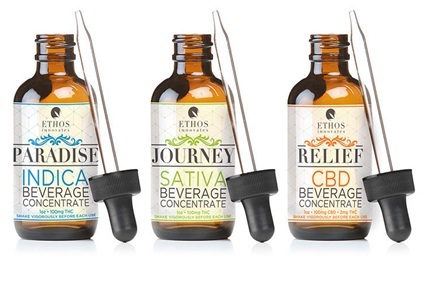Cannabis is not one single product line. Some customers want the benefits of cannabis, but for whatever reason, they do not want to smoke. Others just want an option.
In general, cannabis tinctures are recommended for relieving anxiety disorders, ALS (Amyotrophic Lateral Sclerosis), chronic pain, fibromyalgia, insomnia, muscular spasms, restless leg syndrome, and other conditions.
A few users have reported minimal negative side effects like dizziness, dry mouth, and headaches, but most find the effects pleasurable and the use convenient and soothing.
So, you just might want to know how to make and use cannabis tinctures.
What’s in it for you?
Using cannabis tinctures does deny you the social interaction that comes with smoking. But, they do offer a more discrete, private, and effective experience.
- Quick high: Tinctures are infused alcohols, liquids that come in small pharmacy bottles. They are extracted concentrations of cannabis. During the concentrating process, alcohol absorbs the THC and cannabinoids. Applied under the tongue with an eye dropper, it will affect you quickly.
- Easily taken: Tinctures are taken sublingually, so they have none of the inconvenience or debris generated by smoking. They are a good product for those so ill they have trouble chewing and swallowing.
- Prolonged effects: Edibles metabolize slowly, but tinctures hit home within 15 minutes. It peaks quickly and lasts a long time. How high and how long does depend on your bud choice.
- No aroma: Without a distinctive or identifiable smell, the tincture carries well wherever you go. You don’t have to hide to smoke or worry about the law.
- Shelf-life: Tinctures have a long shelf-live with full potency.
- Reasonably priced: With a medical marijuana card, you can find a tincture at any dispensary in bottles big enough to serve you for quite a while. It comes in different flavors and with different strain heritages. And, a 100 drop bottle costs about $20.00.

Do it yourself
Tinctures – green or gold dragons - may be easy to find and buy, but you may prefer to make your own.
- Start: Gather your supplies: small colored glass bottles with eye-droppers, a small glass mason jar with a lid for processing, a coffee filter for straining, Everclear or 90% pure grain alcohol, and your favorite cannabis bud.
- Plan: You’ll need about one gram of cannabis for 35 mL (1 fld. oz.) of alcohol as a minimum. You can increase the grams of weed as you develop a taste and tolerance for the product. Remember, you are going to use 3-4 drops at a time, and one fluid ounce produces about 6-8 doses. So, once you are used to the process, you can shoot for the volume and potency of your own choice.
- Grind: Cut and weigh your chosen amount and grind the product into a coarse but fluffy texture. Discard any seeds or wood debris, and let the grind dry.
- Soak: Combine the weed and the alcohol in the glass jar and attach the lid. It’s going to soak for 10 to 60 days, so you need to shake it up once a day. Some users store their concoction in the freezer.
- Bottle: After the soak, pour your concoction into your bottles through a coffee strainer or cheesecloth to catch any of the product
There are several other recipes, but one common approach is to cook the mixture. Some users swear by it even if it is a little more complicated.
You place the shredded product on a cookie sheet to bake at 325°F for five minutes. Then, you mix the baked product with the alcohol in the jar.
You place the uncovered jar into one inch of boiling water in a pot until the temperature hits 165°F. But, do not let the mixture in the jar reach a boil.
Once it cools off, you can filter the concoction into your pharmacy bottles.
Added touches
Once you have nailed the process to your preferred batching volume and effects on your system, you can add some touches:
- Some users replace the alcohol with vodka or gin for an infused cocktail, but given the content, you do not want to overdose on a big drink. You still want to balance the liquid and product to work effectively but not dangerously.
- Some add tastes of lemon, mint, orange, or vanilla with small additions of natural flavorings you might have in your kitchen.
- Some people cannot take anything alcohol-based, but they can still mix a batch using glycerin or vinegar. Food grade vegetable U.S.P. glycerin has a shorter shelf-life and less potency than alcohol, but it is low in calories and shows no impact on insulin or blood sugar. And, it tastes naturally sweeter than vinegar.
Tinctures are easily and cheaply purchased where legal. You can use them at your convenience and in private. You can consume them for their medical benefits or just for fun. And, you can make your own.
There are many recipes, so you don’t have to commit to just one. All of them are a bit time-consuming, but once you have a handle on the process, you can make larger or smaller batches.
Tinctures are also added to other cooking recipes. You can add them to cakes and cookies, soups and salad dressings, puddings and teas without an appreciable impact on taste. And, you can mix the tincture with other oils, butters, and spreadable items.
Note: Just because it is easy to treat with tinctures, you still need some caution related to the dosage and your specific medical condition. So, you might find the Mayo Clinic’s detailed report on dosing
"Allbud.com is your comprehensive guide to recreational and medical marijuana dispensaries and strains where you could find nearby dispensaries with reviews and/or explore over 3,000 strains with photos, videos and reviews."
For more details checkout here :- https://www.allbud.com/learn/story/cannabis-tinctures-how-make-and-use-them
